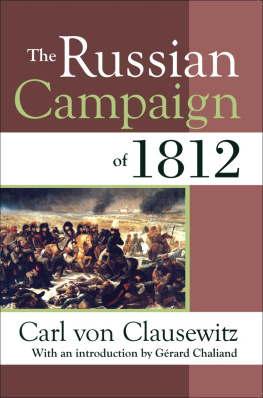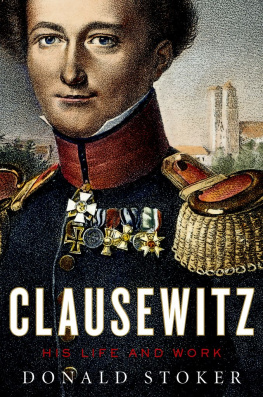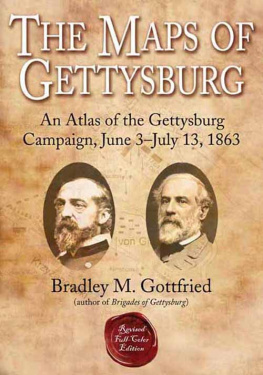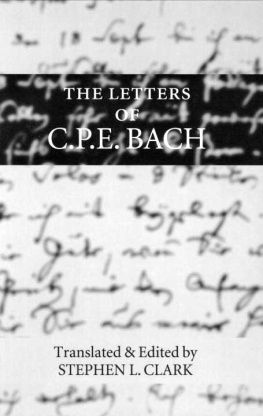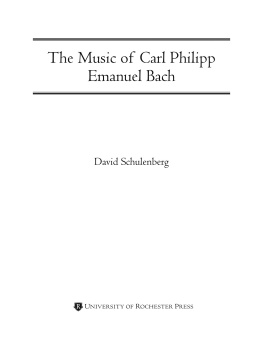This edition is published by PICKLE PARTNERS PUBLISHING
Text originally published in 1843 under the same title.
Pickle Partners Publishing 2011, all rights reserved. No part of this publication may be reproduced, stored in a retrieval system or transmitted by any means, electrical, mechanical or otherwise without the written permission of the copyright holder.
Publishers Note
Although in most cases we have retained the Authors original spelling and grammar to authentically reproduce the work of the Author and the original intent of such material, some additional notes and clarifications have been added for the modern readers benefit.
THIS VOLUME IS DEDICATED
TO
GENERAL SIR ROBERT WILSON,
WHO,
DURING THE CAMPAIGN OF 1812 IN RUSSIA,
AS WELL AS ON FORMER AND SUBSEQUENT OCCASIONS,
BY HIS PRESENCE AND CONDUCT
AT THE HEAD-QUARTERS OF THE ALLIES OF HIS COUNTRY,
CONTRIBUTED TO SUPPORT,
IN THE ESTIMATION OF CONTINENTAL SOVEREIGNS
AND NATIONS,
THE HIGH CHARACTER OF
THE BRITISH ARMY.
Contents
TRANSLATOR'S PREFACE.
THE work here translated forms a portion only of the seventh volume of a posthumous series of military treatises, which have been edited by a sister of their deceased Author, and which, as she informs their readers, were not revised or prepared by him for the press. As the Author, though his long and active services raised him to posts of trust in the service of his country, never attained a situation of independent and conspicuous command in war, a slight sketch of his biography may be necessary to enable English readers to form some estimate of his qualifications for military criticism. Carl von Clausewitz was born in 1780, in the Prussian village of Burg. He entered the military service of his country at the early age of twelve, and assisted at the campaigns of 1793 and 1794. He seems thenceforward to have applied himself to the scientific branches of his profession. In 1801 he entered the military school of Berlin, then conducted by that eminent soldier Scharnhorst, by whom he was soon distinguished and patronised. He assisted at the disastrous campaign of 1806, in which he was wounded and taken prisoner. On his return from France he was placed on the staff of his patron Scharnhorst, and employed in the secret preparations for the renovation of the military resources of Prussia, to which that officer assiduously devoted himself. He was also selected as military instructor to the Crown Prince, now the reigning sovereign. He relates in the present work the course he pursued on the occasion of the rupture between France and Russia, from which it will appear that he made the famous campaign which he describes in the Russian service, and in various capacities. After its conclusion he remained in the service of Russia, but attached to Blucher's corps, till the period of the armistice which interrupted the campaign of 1813. He was afterwards transferred, as chief of the staff, to the corps of General Wallmoden, who commanded a Russo-German division of the army of the North under Bernadotte. His name is mentioned with distinction on several occasions, and particularly in the affair of Goehrde. In 1815 he re-entered the service of his country, and made the campaign of the Netherlands as quartermaster-general to the corps of General Thielman. At the peace he was appointed by his sovereign, first to a general's command on the Rhine, and next to the direction of the military school of Berlin. This sketch may serve to show that the circumstances of his career, and his opportunities for observation and study, were such as to entitle, prim face, his professional works to a consideration which is, we believe, in his own country a high one.
The Russian campaign, the greatest transaction of civilised warfare on record, has found several historians of merit among the eye-witnesses of its occurrences. Of their works, such as are written in the French language, and, with the exception perhaps of the Russian Buturlin, by officers in the service of Buonaparte, are best known to English readers. As a foreigner in Russia, General Clausewitz was at least free from the national partialities which to sonic extent may have influenced the pen either of a French or Russian author. As an actor, he enjoyed every facility for information, except the important one, indeed, of a knowledge of the Russian language. We learn from the preface of his sister, the Editress, that no false delicacy on her part has induced her to suppress certain remarks on individuals, which he would perhaps have been reluctant to see published in his lifetime, and which, being preserved unaltered, make him, to a certain extent, the Clarendon of the crisis he describes. With reference to these various circumstances, we have thought that this translated sample of the works of an Author much respected on the Continent might prove acceptable both to military and other readers.
We must, however, declare in limine, that the style of the Author is dry, and his treatment of his subject professional. Those who seek for those adornments of language, to which that subject so strongly invites an eyewitness of horrors which no language can fully describe, much less exaggerate, will do better to turn to the pages of Segur, La Baume, and others. The second division of the work is out of its place, and unconnected with the other two, being a mere detail of dates, movements, and numbers, affording to a professional reader means of easy and we presume accurate reference, but destitute of the interest which, in the case of the other two, attaches to the Author's personal narrative. Of this, perhaps the most interesting portion is that which concerns the famous York convention. In the former part of the campaign, while the Author was serving with the main army, his ignorance of the Russian language made him little more than an intelligent spectator, embarrassed rather than assisted by nominal functions.
In this transaction he became an useful and trusted agent to General Diebitsch, himself a Prussian; and many of the details which he is thus enabled to give of the conduct and bearing of the Monk of Prussia are, we apprehend, new to the world. The situation of York, as described by the Author, though without any attempt to quit his usual dry and matter-of-fact style, is essentially dramatic, and the allusion of the Author to the Wallenstein of Schiller's tragedy is just and appropriate. We know of no situation in history which renders it more difficult for the reader of after-times to pass a verdict clear and satisfactory to himself on the principal actor. The prejudices and partialities of the time, national and political, might easily have hurried men to a decision, and made of York a traitor or an hero; but when these have passed away the question becomes nicer. Our own opinion is, that the action cannot be fully justified, and yet we give that opinion somewhat in the spirit of the Irish counsel, who, while dilating, as his brief required, on the enormity committed by a party to a duel, was suddenly asked by the judge how he would have himself acted towards his client under the circumstances, and replied, " By the living Gd, my Lord, I would have dilacerated him upon the spot." Without endeavouring further to adjust the balance between impeachment and apology, we content ourselves with the quotation of Thomson's well-known line applied by him to a case of nearly equal delicacy




